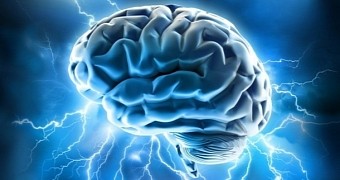E. coli isn't exactly everybody's favorite bacterium in the whole wide world, what with its habit to give folks food poisoning. The thing is that, according to a new study, this bacterium might hold the key to treating Parkinson's.
Thus, writing in the journal Molecular Cell, researchers argue that a protein produced by E. coli bacteria appears to have the potential to inhibit the build-up of harmful protein aggregates associated with this degenerative disorder.
A better understanding of Parkinson's
In the report detailing their work, the University of Michigan scientists behind this investigation explain that, as shown by previous studies, Parkinson's correlates with an accumulation of dangerous amyloids.
The researchers go on to detail that these so-called amyloids, which go hand in hand with several other diseases, are essentially aggregates formed by naturally occurring body proteins that, for some reason, group together in abnormal ways.
In the case of Parkinson's patients, such faulty protein aggregates form in the brain. Being toxic, they eventually trigger cell death and, in doing so, contribute to the onset and the progress of this neurodegenerative disorder.
How E. coli could help treat Parkinson's
Having carried out a series of experiments in laboratory conditions, the University of Michigan specialists found that E. coli is no stranger to amyloids. However, this bacterium forms protein aggregates on its surface and relies on them for protection.
By the looks of it, it is a protein dubbed CsgC that prevents the formation of dangerous amyloids inside E. coli bacterium cells. Evidence indicates that the same protein can prevent the formation and build-up of the dangerous protein aggregates associated with Parkinson's.
Hence, it is argued that it might be possible to use this protein that E. coli bacteria produce to keep themselves safe to limit the brain damage that ultimately causes Parkinson's. Mind you, the protein could even serve as a treatment for other similar conditions such as Alzheimer's.

 14 DAY TRIAL //
14 DAY TRIAL //